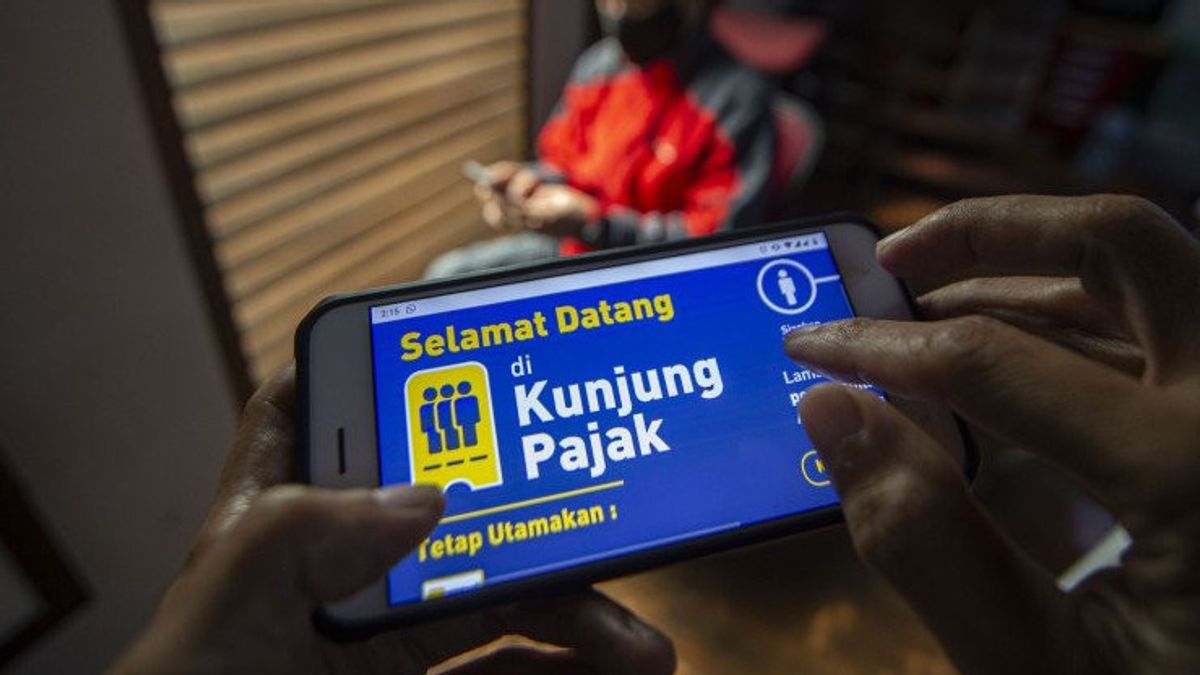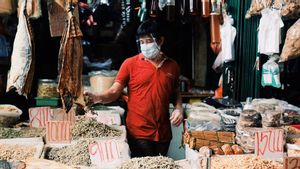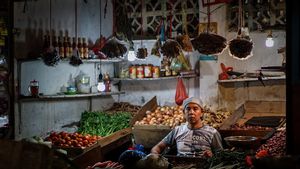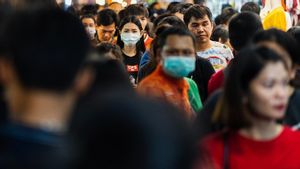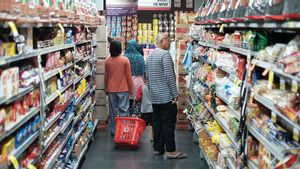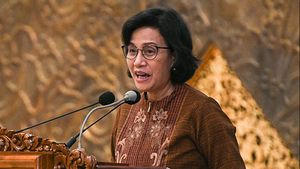JAKARTA - The Institute for Development of Economics and Finance (Indef) estimates that the government will find it difficult to increase tax revenues from the public. The reason is that so far the national economy has been supported by the informal micro, small and medium enterprise (MSME) sector which has not yet been legally registered.
Indef researcher Rusli Abdulah said that this condition was getting worse with the lack of tax collectors or fiscus officers, which until now only numbered 45,000 people. Of all the existing tax authorities, they must collect taxes on 270 million people throughout Indonesia.
Based on data from the Central Statistics Agency (BPS), the number of MSMEs throughout Indonesia in 2020 is 64 million units. As is known, the contribution of MSMEs is 60.3 percent of the total gross domestic product (GDP). In addition, people's businesses absorb 97 percent of the total workforce and 99 percent of the total employment.
"That's actually the size of the informal sector in the Indonesian economy, so expanding the tax base will be difficult and there will be many challenges, especially in the data", said Rusli in an online dialogue in Jakarta, Tuesday, September 14.
In terms of the number of tax collectors, said Rusli, it is very different from developed countries like Japan. There, the Fiscus aka tax apparatus available is twice the number in Indonesia.
Furthermore, Rusli said, the condition was further exacerbated by the poor business governance system in Indonesia. Rusli said that until now there are many businesses whose status is not MSMEs but do not get formal status as large businesses or industries. So, he said, the potential for tax revenue has escaped the government's attention.
SEE ALSO:
"Meatball traders, who are not MSMEs with a monthly turnover of IDR 1 billion are MSMEs? That is actually one of the tax targets that the government can do, but it is still not registered, so it is still difficult", he said.
On the other hand, Rusli regretted the government's attitude that it would discuss collecting value-added tax (VAT) from food or basic needs. According to him, this policy will further burden the lower-middle-class community, who are currently struggling to survive in the midst of the COVID-19 pandemic.
"The potential is only IDR 21 trillion, it also doesn't come suddenly, but there are many challenges that the government has to face. The narrative of increasing food staples is not right in the midst of a pandemic", he said.
The English, Chinese, Japanese, Arabic, and French versions are automatically generated by the AI. So there may still be inaccuracies in translating, please always see Indonesian as our main language. (system supported by DigitalSiber.id)
